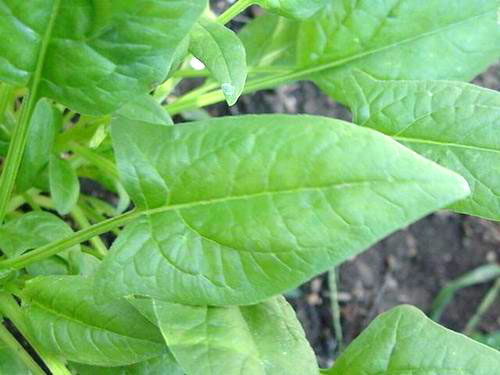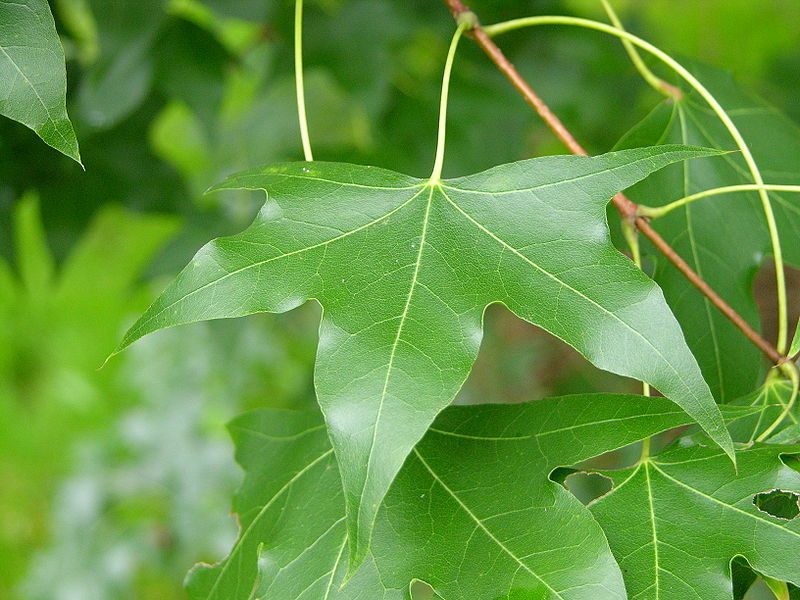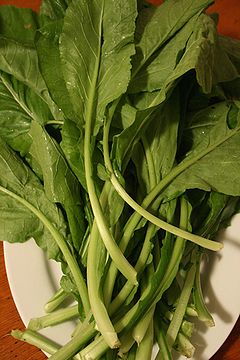LahowalLai khurumba
lai (Khasi)
Contributed by: Bikram M Baruah on 2007-10-13
English: three,
Assamese: তিনি, ত্ৰি, ত্ৰয়, তৰি,
Bodo: थाम,
Mising: aum,
Khasi: lai,
Garo: gittam,
Meeteilon: ahum,
Bishnupriya Manipuri: তিন,
Mizo (Lushai): Pathum,
Karbi: kethom,
Kok-Borok: Tham,
Hmar: pathum, thum,
Dimasa: gatham,
Apatani: hinge,
Tai: ছাম্,
Nepali: तीन,
Rabha: থাম,
Tiwa: tham,
Deori: দা,
Hajong: তিন, তেউছিং,
Santali: pe
lai (Garo)
Contributed by: Mousumi Konwar on 2023-08-17
 English: spinach, spinacia oleraceasci ,
English: spinach, spinacia oleraceasci ,
Assamese: পালেং, পালেং শাক,
Bodo: फालें बिलाइ,
Garo: lai,
Dimasa: phaleng,
Tai: ফাক্-মে-ছি ও
lai (Meeteilon)
Contributed by: Mohen Naorem on 2008-12-12
English: almighty, God, Jagannath,
Assamese: অক্ষয় পুৰুষ, অখিলাত্মা, অচ্যুত, অজৰ, অদিতিজ, অদিতিনন্দন, অদিভিত্, অদ্বৈত, অধিযজ্ঞ, অধীশ্বৰ, অনন্ত, অনাদি, অমৰ, আদি-কৰ্তা, আদি-কৰ্ত্তা, আদিনিৰঞ্জন, আল্লাmc , আল্লাহmc , ইচ্ছাময়, ঈশ, ঈশ্বৰ, ঋতম্ভৰ, ওপৰৱালা, কল্যাণগিৰি, কল্যাণবৃত্ত, কল্যাণসাগৰ, কৰিমmc , কৰুণাময়, খোদাmc , খোদাতাল্লাmc , গহয়la , গোঁসাই, চিদানন্দ, জগতকৰ্তা, জগতকৰ্ত্তা, জগতপতি, জগতপিতা, জগদাধাৰ, জগদীশ, জগদীশ্বৰ, জগধাতা, জগনিবাস, জগন্নাথ, জগন্নিৱাস, জগবন্ধু, জগৎপতি, জগৎপ্ৰাণ, জগৎস্ৰষ্টা, জীৱেশ্বৰ, ত্ৰিদিৱেশ, দীনেশ, দয়, ধাতা, নিৰঞ্জন, নিৰাকাৰ, নিৰাময়, নেদেখাজন, নেদেখাজনা, পতিত-পাবন, পূৰ্ণানন্দ, প্ৰভু, প্ৰাণনাথ, পৰমপিতা, পৰমপুৰুষ, পৰমব্ৰহ্ম, পৰমাত্মা, পৰমানন্দ, পৰমেশ্বৰ, পৰাৎপৰ, পৰেশ, বিধাতা, বিভু, বিশ্ব খনিকৰ, বিশ্বস্ৰষ্টা, বিশ্বাত্মা, বিৰাট পুৰুষ, ব্ৰহ্ম, ভগৱন্ত, ভগৱান, ভাগ্যদেৱতা, ভাগ্যনিয়ন্তা, ভাগ্যবিধাতা, ভুৱনেশ্বৰ, মহাপ্ৰভু, মহিমাময়, সচ্চিদানন্দ, সত্যেন্দ্ৰনাথ, সদানন্দ, সনাতন, সুৰী, সৃষ্টিকৰ্ত্তা, স্বয়ম্ভু, সৰ্বেশ্বৰ, হৰি,
Bodo: अबंलावरि, ईसोर, गसाई, गोद, मोदाइ,
Mising: ru:ne,
Khasi: U Blei,
Garo: Mite,
Meeteilon: lai,
Karbi: arnam, Ranam,
Hmar: Pathien,
Nagamese: deo, ishor, isor, oporwala,
Dimasa: madai, mulok-shangshaiyah, mulokbubra, oishor, phirthi-shangshaiyah, phirthibubra, phlang-shangshaiyah, phlangbubra,
Tai: fra, চাৱ ফ্ৰা, দেও,
Hindi: अन्नदाता, भगवान,
Bangla: ঈশ্বর, জগন্নাথ, ঠাকুর, ভগবান,
Deori: পিচ্চয়, পৰমচা, মিদি
b. Abstract Noun: omnipresent, ubiquitous, সৰ্ববিদ্যমান, সৰ্বব্যাপক, সৰ্বব্যাপী...
lai (Hmar) [ Roman: lai]
Contributed by: judith keivom on 2009-01-03
lai (Dimasa)
Contributed by: Uttam Bathari on 2009-03-16
 English: leaf,
English: leaf,
Assamese: পত্ৰ, পলাশ, পল্লৱী, পাত, পৰ্ণ,
Bodo: बिलाइ,
Mising: un:ne,
Khasi: ka sla kot, sla,
Garo: bijak, bol bijak,
Meeteilon: mana, una,
Bishnupriya Manipuri: পাতা,
Karbi: arvo, lo,
Nagamese: pat, patta,
Dimasa: balai, lai,
Tai: বাৱ,
Hindi: पत्ता,
Bangla: পাতা,
Tiwa: lai,
Deori: চ্চিয়া
Contributed by: Kulendra Daulagupu on 2012-05-10
 English: Brassica juncea, Chinese mustard, Indian mustard, mustard greens,
English: Brassica juncea, Chinese mustard, Indian mustard, mustard greens,
Assamese: লাই শাক,
Mising: tubor oying,
Karbi: hanjang arvo,
Dimasa: lai,
Bangla: লাই শাক,
Deori: মিয়তু
lai (Tiwa)
Contributed by: Biki Bordoloi on 2012-05-15
 English: leaf,
English: leaf,
Assamese: পত্ৰ, পলাশ, পল্লৱী, পাত, পৰ্ণ,
Bodo: बिलाइ,
Mising: un:ne,
Khasi: ka sla kot, sla,
Garo: bijak, bol bijak,
Meeteilon: mana, una,
Bishnupriya Manipuri: পাতা,
Karbi: arvo, lo,
Nagamese: pat, patta,
Dimasa: balai, lai,
Tai: বাৱ,
Hindi: पत्ता,
Bangla: পাতা,
Tiwa: lai,
Deori: চ্চিয়া
lai (Khasi)
Contributed by: Bikram M Baruah on 2007-10-13
1. (Abstract Noun) The cardinal number that is the sum of one and two. এক আৰু দুই যোগ কৰি পোৱা মৌলিক সংখ্যাটো ৷
Assamese: তিনি, ত্ৰি, ত্ৰয়, তৰি,
Bodo: थाम,
Mising: aum,
Khasi: lai,
Garo: gittam,
Meeteilon: ahum,
Bishnupriya Manipuri: তিন,
Mizo (Lushai): Pathum,
Karbi: kethom,
Kok-Borok: Tham,
Hmar: pathum, thum,
Dimasa: gatham,
Apatani: hinge,
Tai: ছাম্,
Nepali: तीन,
Rabha: থাম,
Tiwa: tham,
Deori: দা,
Hajong: তিন, তেউছিং,
Santali: pe
Different POS:
a. Proper Adj.-Common: third, তৃতীয়, gitamgipa, ahumshuba, tisra...lai (Garo)
Contributed by: Mousumi Konwar on 2023-08-17
2. Vegetables(Common Noun) A widely cultivated southwest Asian plant or its leaves having succulent edible leaves.
দক্ষিণ-পশ্চিম এছিয়াত বহুলভাৱে খেতি কৰা এবিধ শাক জাতীয় উদ্ভিদ।

Assamese: পালেং, পালেং শাক,
Bodo: फालें बिलाइ,
Garo: lai,
Dimasa: phaleng,
Tai: ফাক্-মে-ছি ও
lai (Meeteilon)
Contributed by: Mohen Naorem on 2008-12-12
3. Religious-Mythological(Abstract Noun) A being conceived as the perfect, omnipotent, omniscient originator and ruler of the universe বিশ্বব্ৰহ্মাণ্ডৰ সৃষ্টি আৰু পালন কৰ্ত্তা, যাক সৰ্বোত্তম, সৰ্বব্যাপ্ত আৰু সৰ্বজ্ঞানী ৰূপে ধৰা হয় ৷
Assamese: অক্ষয় পুৰুষ, অখিলাত্মা, অচ্যুত, অজৰ, অদিতিজ, অদিতিনন্দন, অদিভিত্, অদ্বৈত, অধিযজ্ঞ, অধীশ্বৰ, অনন্ত, অনাদি, অমৰ, আদি-কৰ্তা, আদি-কৰ্ত্তা, আদিনিৰঞ্জন, আল্লাmc , আল্লাহmc , ইচ্ছাময়, ঈশ, ঈশ্বৰ, ঋতম্ভৰ, ওপৰৱালা, কল্যাণগিৰি, কল্যাণবৃত্ত, কল্যাণসাগৰ, কৰিমmc , কৰুণাময়, খোদাmc , খোদাতাল্লাmc , গহয়la , গোঁসাই, চিদানন্দ, জগতকৰ্তা, জগতকৰ্ত্তা, জগতপতি, জগতপিতা, জগদাধাৰ, জগদীশ, জগদীশ্বৰ, জগধাতা, জগনিবাস, জগন্নাথ, জগন্নিৱাস, জগবন্ধু, জগৎপতি, জগৎপ্ৰাণ, জগৎস্ৰষ্টা, জীৱেশ্বৰ, ত্ৰিদিৱেশ, দীনেশ, দয়, ধাতা, নিৰঞ্জন, নিৰাকাৰ, নিৰাময়, নেদেখাজন, নেদেখাজনা, পতিত-পাবন, পূৰ্ণানন্দ, প্ৰভু, প্ৰাণনাথ, পৰমপিতা, পৰমপুৰুষ, পৰমব্ৰহ্ম, পৰমাত্মা, পৰমানন্দ, পৰমেশ্বৰ, পৰাৎপৰ, পৰেশ, বিধাতা, বিভু, বিশ্ব খনিকৰ, বিশ্বস্ৰষ্টা, বিশ্বাত্মা, বিৰাট পুৰুষ, ব্ৰহ্ম, ভগৱন্ত, ভগৱান, ভাগ্যদেৱতা, ভাগ্যনিয়ন্তা, ভাগ্যবিধাতা, ভুৱনেশ্বৰ, মহাপ্ৰভু, মহিমাময়, সচ্চিদানন্দ, সত্যেন্দ্ৰনাথ, সদানন্দ, সনাতন, সুৰী, সৃষ্টিকৰ্ত্তা, স্বয়ম্ভু, সৰ্বেশ্বৰ, হৰি,
Bodo: अबंलावरि, ईसोर, गसाई, गोद, मोदाइ,
Mising: ru:ne,
Khasi: U Blei,
Garo: Mite,
Meeteilon: lai,
Karbi: arnam, Ranam,
Hmar: Pathien,
Nagamese: deo, ishor, isor, oporwala,
Dimasa: madai, mulok-shangshaiyah, mulokbubra, oishor, phirthi-shangshaiyah, phirthibubra, phlang-shangshaiyah, phlangbubra,
Tai: fra, চাৱ ফ্ৰা, দেও,
Hindi: अन्नदाता, भगवान,
Bangla: ঈশ্বর, জগন্নাথ, ঠাকুর, ভগবান,
Deori: পিচ্চয়, পৰমচা, মিদি
Related Idea:
a. Common Noun-Common: deity, God, অগ্নিজিহ্বা, অগ্নিমুখ, অদিতিজ...b. Abstract Noun: omnipresent, ubiquitous, সৰ্ববিদ্যমান, সৰ্বব্যাপক, সৰ্বব্যাপী...
lai (Hmar) [ Roman: lai]
Contributed by: judith keivom on 2009-01-03
4. (Material Noun-Neuter) the small round part in the middle of the stomach which is left after the umbilical cord ( long tube of flesh joining the baby to its mother) has been cut at birth.
কেঁচুৱা জন্মৰ সময়ত মাকৰ সৈতে সংযোগী নাড়িডাল কটাৰ পাছত পেটত সোঁমাজত থাকি যোৱা সৰু, ঘুৰণীয়া অংশ
lai (Dimasa)
Contributed by: Uttam Bathari on 2009-03-16
5. (Common Noun-Neuter) one of the expanded, usually green organs borne by the stem of a plant উদ্ভিদৰ কাণ্ড বা গা-গছে ধাৰণ কৰা বহল, সাধাৰণতে সেউজীয়া অঙ্গ বিশেষ

Assamese: পত্ৰ, পলাশ, পল্লৱী, পাত, পৰ্ণ,
Bodo: बिलाइ,
Mising: un:ne,
Khasi: ka sla kot, sla,
Garo: bijak, bol bijak,
Meeteilon: mana, una,
Bishnupriya Manipuri: পাতা,
Karbi: arvo, lo,
Nagamese: pat, patta,
Dimasa: balai, lai,
Tai: বাৱ,
Hindi: पत्ता,
Bangla: পাতা,
Tiwa: lai,
Deori: চ্চিয়া
Contributed by: Kulendra Daulagupu on 2012-05-10
6. Vegetables(Common Noun-Neuter) The leaves, the seeds, and the stem of this mustard variety are edible. The plant appears in some form in African, Italian, Indian, Chinese, Japanese, and Soul food cuisine. Cultivars of B. juncea are grown as greens, and for the production of oilseed. The leaves are used in African cooking, and leaves, seeds, and stems are used in Indian cuisine, particular in mountain regions of Nepal etc. লাই শাক অসমীয়া আখলৰ এবিধ প্ৰিয় খাদ্য ৷ লাই শাক অলপ তিতিকি সোৱাদৰ হয় ৷

Assamese: লাই শাক,
Mising: tubor oying,
Karbi: hanjang arvo,
Dimasa: lai,
Bangla: লাই শাক,
Deori: মিয়তু
lai (Tiwa)
Contributed by: Biki Bordoloi on 2012-05-15
7. (Common Noun-Neuter) one of the expanded, usually green organs borne by the stem of a plant উদ্ভিদৰ কাণ্ড বা গা-গছে ধাৰণ কৰা বহল, সাধাৰণতে সেউজীয়া অঙ্গ বিশেষ

Assamese: পত্ৰ, পলাশ, পল্লৱী, পাত, পৰ্ণ,
Bodo: बिलाइ,
Mising: un:ne,
Khasi: ka sla kot, sla,
Garo: bijak, bol bijak,
Meeteilon: mana, una,
Bishnupriya Manipuri: পাতা,
Karbi: arvo, lo,
Nagamese: pat, patta,
Dimasa: balai, lai,
Tai: বাৱ,
Hindi: पत्ता,
Bangla: পাতা,
Tiwa: lai,
Deori: চ্চিয়া

